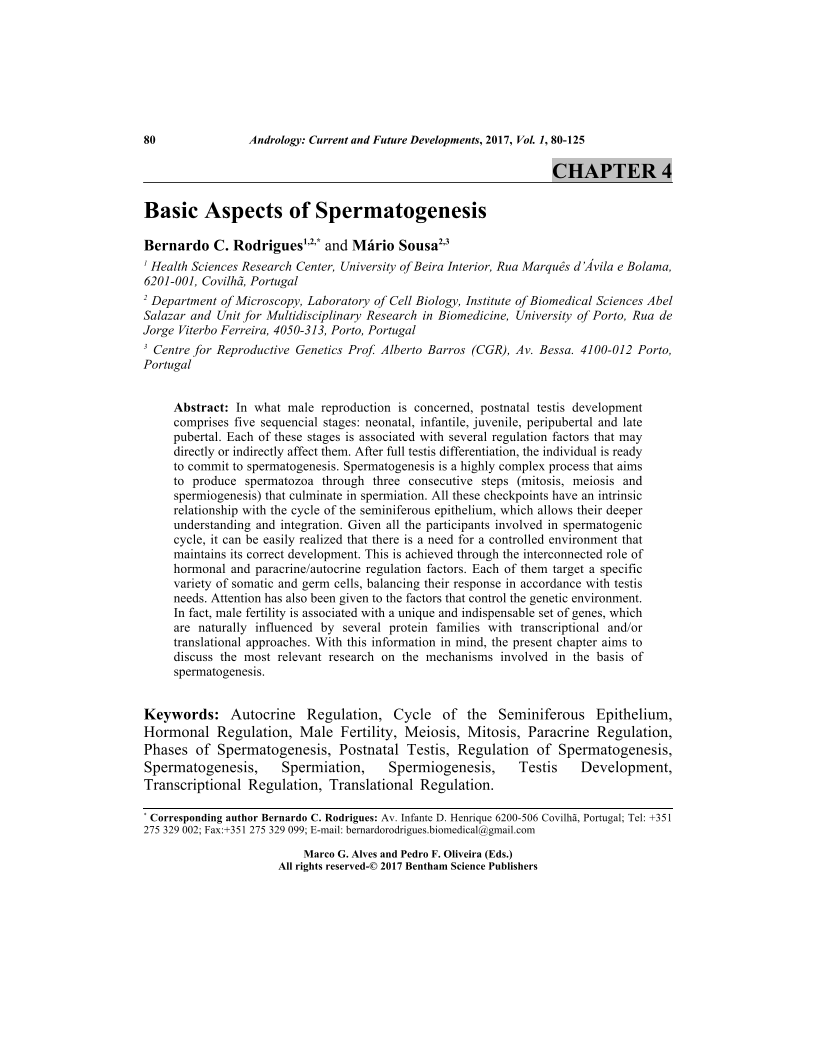Basic Aspects of Spermatogenesis

- Authors: Bernardo C. Rodrigues1, Mário Sousa2
-
View Affiliations Hide Affiliations1 Health Sciences Research Center, University of Beira Interior, Rua Marquês d’Ávila e Bolama, 6201-001, Covilhã, Portugal 2 Department of Microscopy, Laboratory of Cell Biology, Institute of Biomedical Sciences Abel Salazar and Unit for Multidisciplinary Research in Biomedicine, University of Porto, Rua de Jorge Viterbo Ferreira, 4050-313, Porto, Portugal
- Source: Biochemistry of Andrology , pp 80-125
- Publication Date: July 2017
- Language: English
Basic Aspects of Spermatogenesis, Page 1 of 1
< Previous page | Next page > /docserver/preview/fulltext/9781681085005/chapter-4-1.gif
In what male reproduction is concerned, postnatal testis development comprises five sequencial stages: neonatal, infantile, juvenile, peripubertal and late pubertal. Each of these stages is associated with several regulation factors that may directly or indirectly affect them. After full testis differentiation, the individual is ready to commit to spermatogenesis. Spermatogenesis is a highly complex process that aims to produce spermatozoa through three consecutive steps (mitosis, meiosis and spermiogenesis) that culminate in spermiation. All these checkpoints have an intrinsic relationship with the cycle of the seminiferous epithelium, which allows their deeper understanding and integration. Given all the participants involved in spermatogenic cycle, it can be easily realized that there is a need for a controlled environment that maintains its correct development. This is achieved through the interconnected role of hormonal and paracrine/autocrine regulation factors. Each of them target a specific variety of somatic and germ cells, balancing their response in accordance with testis needs. Attention has also been given to the factors that control the genetic environment. In fact, male fertility is associated with a unique and indispensable set of genes, which are naturally influenced by several protein families with transcriptional and/or translational approaches. With this information in mind, the present chapter aims to discuss the most relevant research on the mechanisms involved in the basis of spermatogenesis.
-
From This Site
/content/books/9781681085005.chapter-4dcterms_subject,pub_keyword-contentType:Journal -contentType:Figure -contentType:Table -contentType:SupplementaryData105

